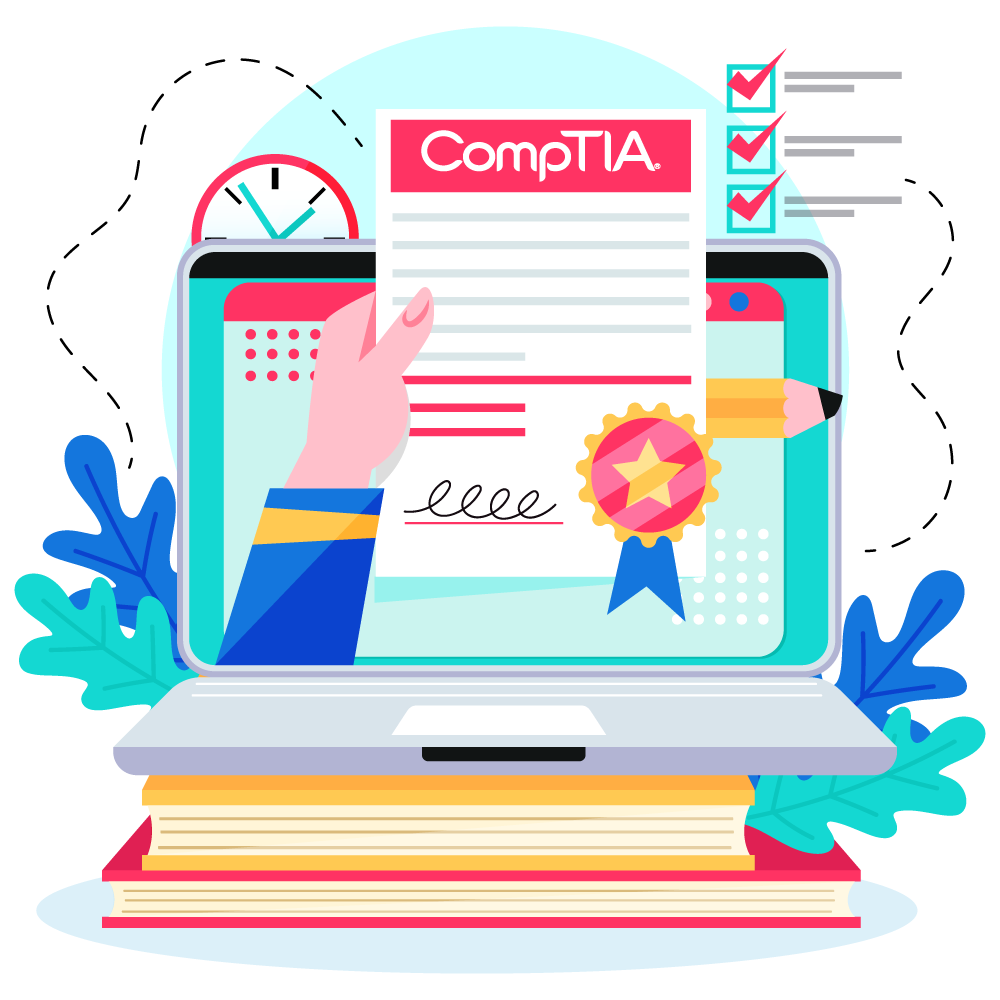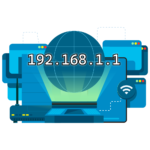CompTIA Certifications
In the fast-paced world of information technology, certifications play a crucial role in validating your skills and knowledge. Among the many certification providers, CompTIA stands out as a trusted and widely recognized organization, offering a range of certifications that cater to various levels of IT professionals. Whether you’re just starting in IT or looking to advance your career, earning a CompTIA certification can open doors to new opportunities and set you apart from the competition.

In this guide, we will explore the most popular CompTIA certifications, discuss their benefits, and provide you with the information you need to successfully earn these credentials.
What Are CompTIA Certifications?
Understanding the CompTIA Certification Pathway
CompTIA certifications are vendor-neutral credentials that cover a wide range of IT skills, from foundational knowledge to advanced expertise in specific domains. These certifications are designed to help IT professionals at all stages of their careers, from beginners to experienced experts.
Key CompTIA Certifications:
- CompTIA A+: The entry-level certification for IT professionals, covering foundational IT skills.
- CompTIA Network+: Focuses on networking concepts, including configuration, management, and troubleshooting of networks.
- CompTIA Security+: Aimed at professionals interested in cybersecurity, this certification covers essential security concepts and practices.
- CompTIA CySA+: Focuses on cybersecurity analysis, including threat detection and response.
- CompTIA CASP+: An advanced certification for professionals dealing with enterprise security and complex cybersecurity issues.
Important Link: Top IT Certifications to Boost Your Career in 2024
Why Earn a CompTIA Certification?
The Benefits of CompTIA Certifications
Earning a CompTIA certification can provide numerous benefits, regardless of where you are in your IT career.
- Vendor-Neutral Credentials: Unlike certifications tied to specific vendors (e.g., Microsoft, Cisco), CompTIA certifications are vendor-neutral, giving you a broader understanding of IT concepts.
- Widely Recognized: CompTIA certifications are recognized globally, making them valuable credentials no matter where you work.
- Career Advancement: CompTIA certifications can help you qualify for higher-paying jobs, promotions, and specialized roles within your organization.
- Foundation for Further Learning: These certifications often serve as a stepping stone for more advanced certifications and specializations in areas like networking, security, and cloud computing.
Important Link: CompTIA Certification Pathway
How to Choose the Right CompTIA Certification
Aligning Certifications with Your Career Goals
Before you start studying for a CompTIA certification, it’s essential to choose the one that best aligns with your career goals. Here’s a brief overview of some of the most popular CompTIA certifications:
1. CompTIA A+
Who Should Pursue It:
- IT beginners, help desk technicians, and support specialists.
What It Covers:
- Hardware and software troubleshooting, networking, operating systems, and security.
Why It’s Valuable:
- CompTIA A+ is often considered the industry standard for launching a career in IT.
2. CompTIA Network+
Who Should Pursue It:
- Network administrators, network support technicians, and IT professionals focused on networking.
What It Covers:
- Network installation, configuration, management, and security.
Why It’s Valuable:
- CompTIA Network+ provides the foundational knowledge needed for a career in networking.
3. CompTIA Security+
Who Should Pursue It:
- Security administrators, systems administrators, and IT professionals focused on cybersecurity.
What It Covers:
- Network security, threat management, cryptography, and identity management.
Why It’s Valuable:
- CompTIA Security+ is a globally recognized certification that opens doors to cybersecurity roles.
4. CompTIA CySA+
Who Should Pursue It:
- IT security analysts, vulnerability analysts, and threat intelligence analysts.
What It Covers:
- Advanced threat detection, risk mitigation, and security monitoring.
Why It’s Valuable:
- CompTIA CySA+ is designed for professionals focused on proactive cybersecurity measures.
5. CompTIA CASP+
Who Should Pursue It:
- Security architects, senior security engineers, and IT professionals dealing with enterprise security.
What It Covers:
- Advanced security concepts, including enterprise security, risk management, and integration of computing, communications, and business disciplines.
Why It’s Valuable:
- CompTIA CASP+ is ideal for IT professionals who want to lead and manage enterprise security.
Important Link: How to Get Started with AWS Certifications
How to Prepare for a CompTIA Certification Exam
Creating an Effective Study Plan
Once you’ve chosen the certification that aligns with your career goals, it’s time to start preparing. Here are some steps to help you study effectively:
- Review the Exam Objectives:
- Start by reviewing the exam objectives provided by CompTIA. These objectives outline the topics that will be covered on the exam and help you focus your study efforts.
- Important Link: CompTIA Exam Objectives
- Use Study Guides and Books:
- Invest in a comprehensive study guide tailored to your certification. For example, the “CompTIA A+ Certification All-in-One Exam Guide” by Mike Meyers is a popular choice for A+ exam preparation.
- Enroll in Online Courses:
- Platforms like Udemy, Coursera, and LinkedIn Learning offer courses specifically designed for CompTIA certifications. These courses often include video lectures, quizzes, and hands-on labs.
- Practice with Simulated Exams:
- Taking practice exams is crucial to familiarize yourself with the exam format and question types. CompTIA offers official practice tests, and there are many third-party providers as well.
- Gain Hands-On Experience:
- If possible, gain practical experience related to your certification. For example, if you’re preparing for the CompTIA A+ exam, work on real hardware and software troubleshooting scenarios.
Important Link: Understanding the Requirements for a Certified Ethical Hacker (CEH) Certification
Registering for Your CompTIA Certification Exam
Steps to Register and What to Expect
When you’re ready to take the exam, follow these steps to register:
- Create a CompTIA Account:
- Go to the CompTIA website and create an account if you don’t already have one.
- Select Your Exam:
- Choose the certification exam you’re pursuing and select the appropriate exam code.
- Choose a Testing Option:
- CompTIA exams can be taken either online or at a physical testing center. Choose the option that works best for you.
- Schedule Your Exam:
- Select a date and time for your exam. If you’re taking the exam online, ensure that your computer meets the technical requirements.
- Pay the Exam Fee:
- Pay the exam fee, which varies depending on the certification. Prices typically range from $200 to $400.
- Prepare for Exam Day:
- On exam day, make sure you have a valid ID and are well-prepared. If taking the exam online, ensure your environment is quiet and free of distractions.
Important Link: Register for CompTIA Exams
After the Exam: What’s Next?
Earning Your Certification and Planning Your Next Steps
After completing the exam, you’ll receive your results immediately. If you pass, congratulations! You’ll earn a digital badge that you can share on your LinkedIn profile, resume, and other professional platforms.
Continuing Your Certification Journey
CompTIA certifications are valid for three years, after which you’ll need to renew them through the CompTIA Continuing Education (CE) program. Additionally, you may want to pursue more advanced certifications or branch out into other areas of IT.
Important Link: The Benefits of Earning a Google Cloud Certification
Conclusion
Earning a CompTIA certification is an excellent way to validate your IT skills, advance your career, and open up new opportunities in the tech industry. Whether you’re just starting in IT or looking to specialize in areas like networking or cybersecurity, there’s a CompTIA certification that can help you achieve your goals.
By following this guide, you’ll be well on your way to earning your certification and taking the next step in your IT career. Remember, preparation is key, so take the time to study, practice, and gain hands-on experience to ensure your success.
Good luck on your journey to becoming CompTIA certified!
Related
Discover more from Computer Climax
Subscribe to get the latest posts sent to your email.






One Response